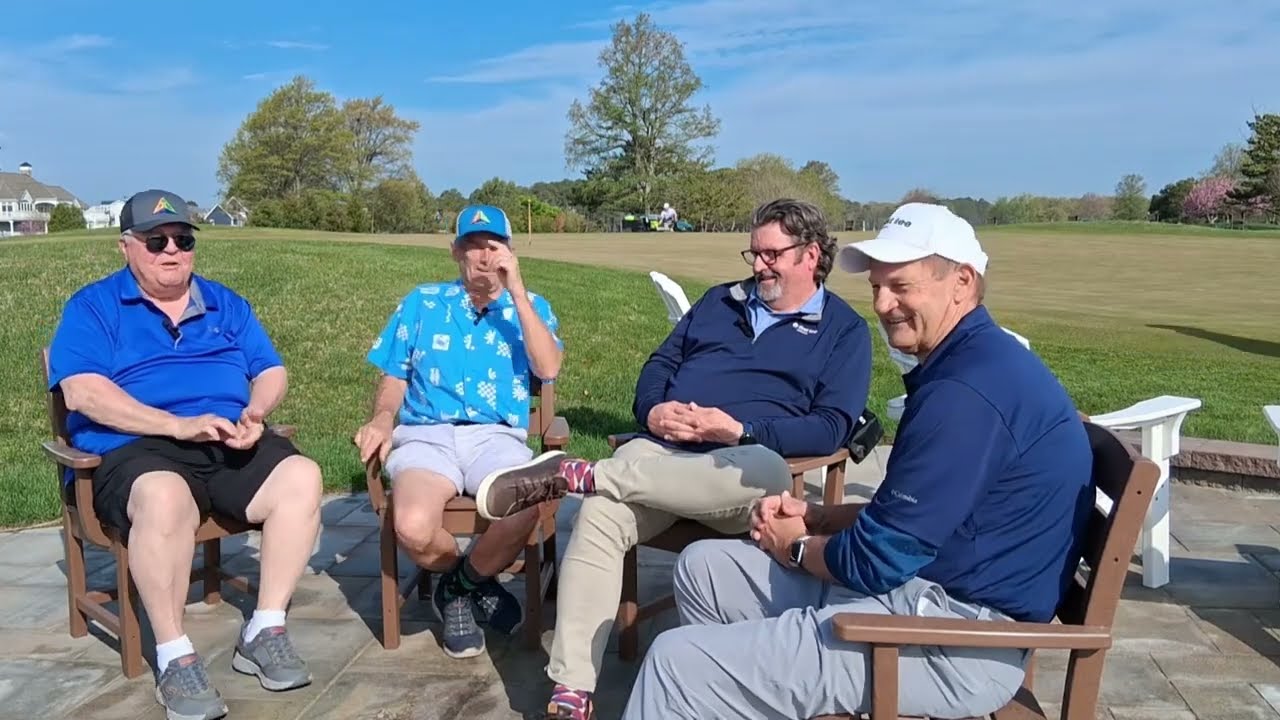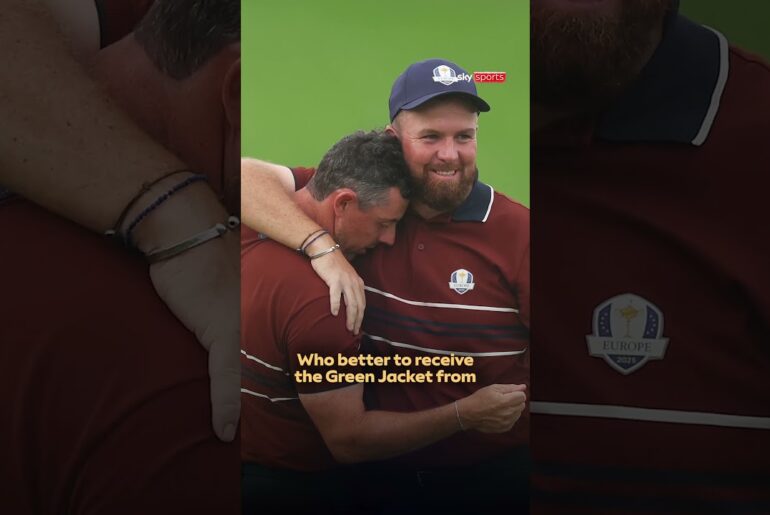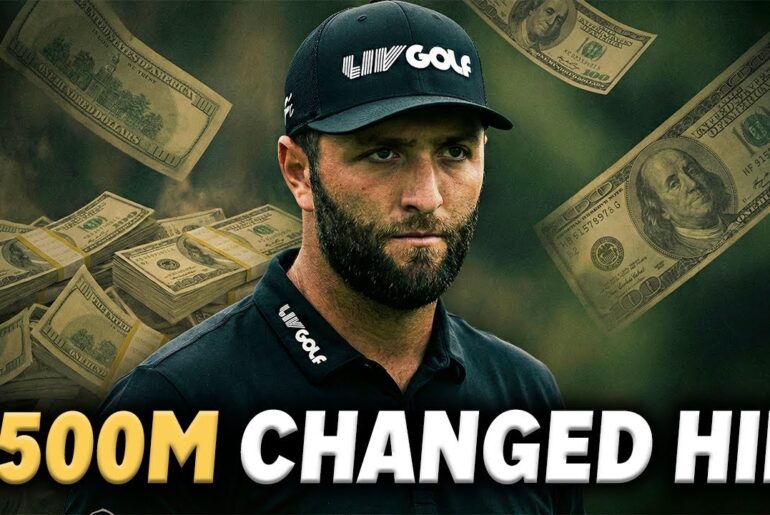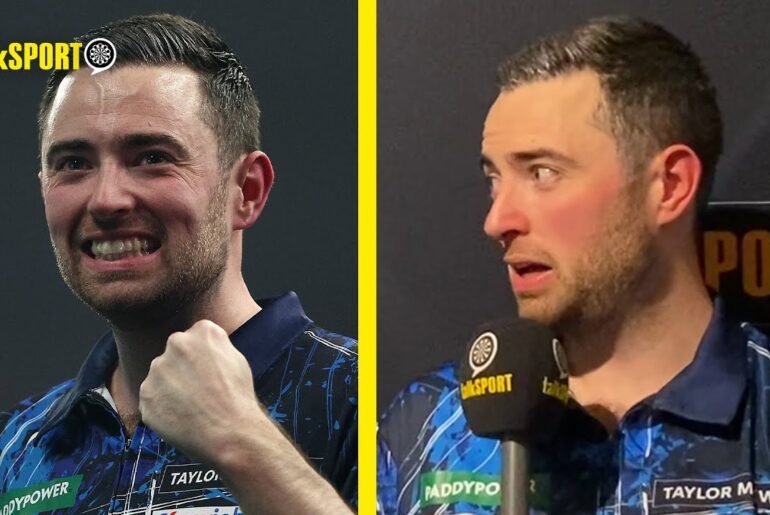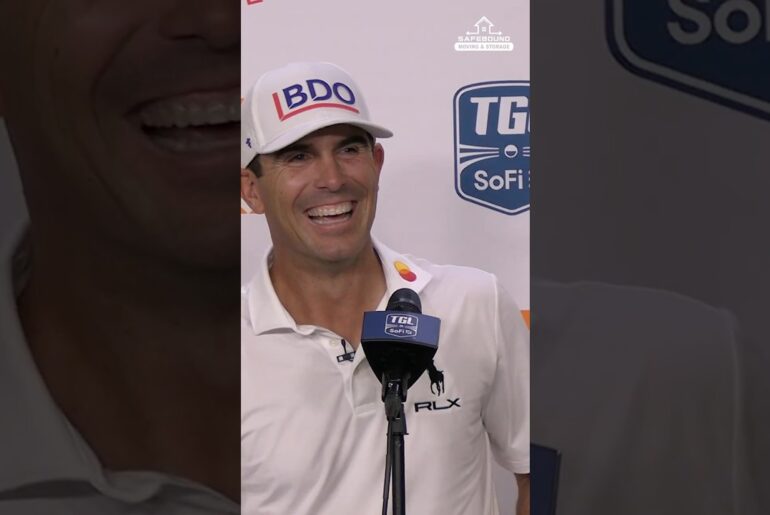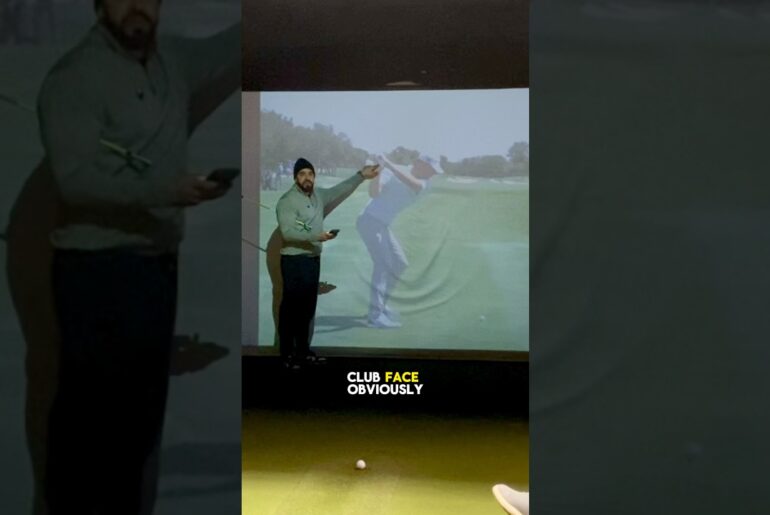We interview Bob and Scott from First Tee Delaware to discuss what First Tee represents and how it makes kids better people and golfers.
everyone thanks again for joining us here on BLG18 i’m Paul B you know MJ i have two very esteemed guests with us today we’re out here at the Raovich Beach Country Club for one of the first TE’s um major fundraisers of the year um so I have Scott Allen and I have Bob Nars and we’re going to do a little talk about First T and give you an idea of why it’s such an important organization to support yes can one of you tell us how did the organization get started and how much has it grown over the years so FIR first nationally uh has has 150 chapters nationwide or 150 plus chapters nationwide we um uh Delaware if I put it in context Delaware is one of the few chapters that is a full state chapter um it’s we’re into our 30th year we started as an organization called Urban Golf Program Urban Youth Golf Program Association and it was all about because Tiger came into the game and opened up the game um and kind of saying people of of all kinds need to play the game and that opened it up but we were associated with the LPJ in the first few years where it’s also our 20th year anniversary with First T when first te came about um uh we started growing and the beauty of first te is the fact is that not only do we teach golf but we teach life skills we teach core values we teach teamwork as kind of an overall even that sounds strange from a golf perspective but it’s working together and it’s building relationships and it’s that building relationships and those life skills that is kind of like the secret sauce to first te what would you add yeah I mean I think when first te was initially founded years ago their their goal at the time was access they thought they wanted to give kids a place to play maybe kids had had learned the game through another nonprofit organization they had nowhere to go and play and so that while that was their start they quickly realized it’s the life skills that are so powerful that are inherent in golf maybe even more so i mean they’re life skills kind of come with with sports in general but they’re inherent even more so I think in golf and they quickly created a revolutionary curriculum that blends golf and life skills and as you guys know each week we teach a golf skill with a life skill i always use judgment as an example you’ve got to make decisions on a golf course you’ve got to decide what club to hit where do I want to hit it over the water or do I want to lay up and the process you use to make those decisions is not that different from the one you use to decide do I want to do my homework first or play video games when I get home from school or my my buddies want to play a prank on the neighbor do do I want to go along with that or do I want to sit this one out um right so the life skills that kind of just connect so easily with golf and that’s that’s way what what we what we do hopefully kids are learning the game they’re learning a lifetime sport that gets them outside but they’re also learning those life skills well Corey he’s he’s like a graduate of that right he’s one of the kids that we we’re actually here playing with him today he is what an individual what an individual what a good kid he’s such a grownup right at such a young age and his head is so grounded y and and I do believe it’s part of this program that did it for him and John the kind of goal is not only teaching life skills but really from for me and what got me into first after a year after years and years in consulting management consulting and finance and and accounting work is the fact is that we’re building leaders we’re building leaders for the community absolutely for the state for the country i mean cuz by taking the life skills as Scott put it and putting them into a golf situation we’re teaching them honesty we’re teaching them respect right we’re teaching them responsibility integrity these are all critical values that a leader needs to have i don’t care whether you’re in government or if you’re in business or if you’re in the community leaders have had to have these core values and and the commitment to excellence absolutely yeah take my mic for a second this is Corey everybody You may want to get down you may want to get down here a little bit will you be in the chat yeah well yeah that’s better just when I first met this guy I saw he’s a goofball from high school okay you know you know at that age you know yeah either you talking about Paul or you that much of a difference anyway uh just just kind of let the audience know what like you’ve been through first program now for a few years give them an idea of what it’s been like for you um going through the first program Mr paul it’s been honestly a really good pleasure and it’s helped me become such a better golfer and a better person and help me navigate life and see life in a whole new perspective it’s been one of the best decisions joining that program and it’s helped me tremendously thank you tell and that is best the best commercial for you guys not YouTube a guy like him talking oh it is you can’t this is worth this is money right here this is a guy that I met 5 years ago when I started um with First T and when I talked to him a couple weeks ago cuz now he’s graduating high school and I asked him what he’s looking to tell tell them what you’re looking to do in the next year or so um to go to school and the head of the operating outstanding all right and you’ve started an investment account for yourself i have right and and he he’s out there he’s like “I know now I’m going to go out there and make money but I’m going to do it the right way.” Exactly you know and and when you hear somebody his age saying “No I can do this.” You know I’m going to Cuz Isn’t it true though that like like your community college um is going to get paid for by your by your my employer by your employer fabulous so who what employer would do that for somebody unless they really thought you make a strong impression yeah yeah and and he he wants to travel to the bulldozer and I got to talk to you later i made a connection for him to talk that there are companies that he can see the world or or the United States doing this at really good money right out of high school so uh uh I’m going to set you up with that after we get done here and I’m done talking to you uh you I don’t want you to talk i want you to go putt thanks a lot you got you got to carry that team yeah hit some balls get warmed up there’s no there’s no excuse none none my pet peeve has always been and I know you guys address it and and my uncle used to say you know people go buy a set of clubs i wish they go to a school like you do for boating mhm you know because they go into golfer and they don’t have any idea what they’re doing they don’t understand they used to teach a golf class at uh in university and that was one of the things that I always thought was interesting is most sports you learn in a in a structured environment you played little league you played youth soccer and yeah your yourth soccer coach may not have you know played in Europe but presumably they they’ve been taught the rules you you’re going to pick up what the offside rule is you’re going to pick up and most people learn golf from their buddies or their grandma or their mom and if if your if your mom and dad or your buddies don’t know the rules you don’t know the rules either so I my my golf class at George Washington always had a had an etiquette class and an etiquette quiz and a rules class and a rules quiz and I’d give the rules quiz to the athletic director and the basketball coaches and no nobody got good scores on my rules quiz and it wasn’t that hard but I mean you know you play with your friends and this this is what your friends do when you hit the ball out of bounds so that’s what you think the rule is some of the things I’ve seen on a golf course oh my gosh that’s right you know I’ve seen guys with a pull cart walk across the green they didn’t know any better yeah they don’t know any better right they didn’t know any better you tell them “What are you doing talking about?” Yeah so how do you evaluate let’s say a 12-year-old wants to join right their their parent has taught them a little bit about golf how do you eval do you like is there an evaluation process that you go through or do you just invite them down and if they’re a good enough kid that doesn’t create turmoil you know within the rest of the group like just give people an idea so this way maybe they they know they can bring their kids in so we don’t really evaluate is the honest we bring every every kid that wants to play golf every parents that want their children to play golf we don’t evaluate them we figure what we can do with the life skills is basically kind of teach them the life skills and their behavior will change accordingly they’ll adopt it because the nature of of the course the nature of the sport is is it demands that you have these life skills they’ll learn very quickly through peer pressure through kind of adult mentorship they’ll learn very quickly what is the right way to behave on the course scott mentioned the accessibility piece of it the whole our our mantra which underlies our purpose and our mission is is affordability and accessibility right so if parents are are having a tough time financially we still will bring them in right that’s right um we will still provide that we give scholarships we give financial aid we provide clubs because as we know the game of golf is on the expensive side right and so so the whole idea is to get them on the course and once we get them on the course then and we start to introduce the life skills to them that behavior will reflect what golf is that’s one of the things that’s missing today because when my uncle started they started catting and that’s where they learned the game and they could always play on Mondays it was always catty day was Monday they could go out and play but they watched the guys they knew what was bad they knew what was good and that’s where they learned the skills today that’s not available to these kids no not as frequent opportunities in Delaware through first but it it certainly is not what it was and through the Western Golf Association and and through uh the Golf Association of Philadelphia there are caddy opportunities out there but unfort unfortunately I can say this is that not a lot of clubs really focus on caddy people and people themselves where where they don’t walk the courses they ride the courses so when you have when you’re taking carts you don’t need caddies necessarily right even though you can have four caddies and that’s we are developing a program a caddy program slowly but it’s in conjunction with Golf Association of Philadelphia and the Western Golf Association we did have a young lady get an Evans uh scholarship full tuition scholarship full full all full urban board scholarship this year uh through through the caddy program that we had that’s that is in its infancy let’s say up in Wilmington that’s good and we’ve got a few you know fits and starts down here but we haven’t really gotten it taken yet yeah again I think a lot of it is just the culture we need clubs to embrace it we need members then to say I I want to walk with a caddy as opposed to riding in a cart and I think that that’s a slow learning process but I think it’s it’s cuz I know that like I I my home course was Beth Paige up in Long Island and the black course never had well they never had caddies on any of the five courses okay and only very recently do they now allow caddies on the black because they don’t allow drive carts on the black so they also don’t allow this two of the courses they don’t allow they do but the two they they allow the cart they don’t have caddies they people will just ride but the caddies that they use on the black or on the green they’re the ones that the people really enjoy the idea that well first we have somebody who knows the course that can help but it’s also if they’re young enough golfers in a funny way want to mentor we do you know if if we’re playing with somebody and we see them doing something we just can’t help ourselves to go why don’t you try this you know and in the middle of the round you’re expecting them to chase it but it’s just something we have inherently that’s right and Paul you know it from your perspective as a coach our first T coaches like yourself and and those that that volunteer for us it is all about coaching and then hence mentoring if the ideal is for is for a relationship develop with a coach and Cory’s a perfect example of that is is that the participant sees the coach as a potential mentor right right and it’s that mentoring I think that is kind of to me the ultimate goal is to get that relationship into a mentoring relationship you all have done that with Corey scott’s done it with a number i’ve done it with a few emily Mayo who is the um was the Evans Scholar uh recipient she we developed her with a mentoring approach our our program director up in uh Newcastle County and and the northern part of our region has mentored Emily for years and years and years ever since she started our program at 8 but we have a number of examples of the kids that have gone on and done well is because of the mentoring that happens and the coaching first but the coaching then evolving into mentorship i I got I got the privilege of coaching high school basketball for 12 years and I considered a successful season if next year the same kids came out exactly which mean it didn’t turn them off to the game mhm and that that meant a lot to me that’s how I measure and the same thing with you when the kids keep coming back you’re doing something right that’s exactly right and and I think that’s so important that people understand yeah because Yeah because I I think that really considering the age group that we deal with that’s the parent it is saying something happened to my kid something changed with my kid i want him or her to come back into this program cuz they they are there’s something about this program that’s making them better people and if the parent recognizes it cuz I know the kids do cuz I’ve seen a couple of kids that have come in you know we we’ve had a couple of you know ADHD kids autistic kids come in and they just love the idea that they try hard and even if they miss it’s okay as long as you tried and and we emphasize that so many times that maybe they don’t get that in school maybe they don’t get that at home but they love coming out just just for a simple reason you know because part of that is that we want them to make friends too because these are kids they’re going to go to school with yeah that’s exactly right what people should know it this also is a social thing it is it’s almost a social experiment that’s been lost that’s right and you guys are trying to bring it back and you’re doing a great job with it yeah well thanks um and Scott you know this as well what I tell the tell the kids when I when I’m sitting in front of the kids too I said “Yeah golf is is a tough sport and and you have to practice a lot to to if you have aspirations of being really good.” But the the beauty of golf for me is that it builds friendships yes and when where else in society today that you get a chance to spend 5 hours with with people that you love you know that you love to be around and that you’re focusing and it it is all about building friendships and then if you expand that to two or three or four other groups now we’re talking about 12 to 20 people that are a core group of friends we need that desperately in our society today i I’m in that uh Indie River League and I play with a forsome portion all the time and completely different backgrounds completely different political views yes but we’re on the golf course we get along terrific that’s exactly right because we’re all massochists yeah we all love it’s but but Paul it’s that one shot that keeps going that one shot no matter how bad you play you hit one and you think if I can hit them all like that and likewise no matter how well you play you hit a couple of I always remember how close Norman years ago played I don’t even what the event was but he shot 61 and I interviewed him after the round and they said then well how did how was the round and the first thing he said he goes well I hit that bunker shot a little thin on 12 and I made a I made a par and I need to get up and down there and And another I missed that that sixfooter on 14 if I made those two it would have been 59 no matter how great he played it could have been a little better just not satisfying and no matter how bad you play there’s always one or two that you don’t like but it’s so true because the the old funny adage about golf is you only got to hit one shot out of 90 or or anywhere from 80 to 140 shots you only have to hit one that’s right yeah which is kind of the same when when you’re let’s say you start a new job somewhere if you can hook on to somebody in that job and you really get along well and you work well together that’s going to keep you there well and that made the biggest difference for my career right so I went from accounting and finance related to management consulting um and it was it was the connection I made with a guy who brought me into the consulting organization right and it was his mentorship that really helped me develop into the consultant that I was that I was and we were part of building that i was a critical part of building a consulting practice that was that ultimately became 140 consultants worldwide and for relative relatively speaking for the consulting practice that was part of uh the consulting group Price Waterhouse Coopers it was a $25 million practice which was a fairly large practice in the in the so without that mentorship I would have not developed into that leader that I became um and then and it was like encouraging people and I was practicing practicing that servant leader Yes mindset where my job is to make my other consultants that work for me into better consultants right i wanted them to be successful i wanted them to experience what I experienced that is to me from a leadership standpoint that was so critical and that’s what then we also then passed on to our clients um that’s kind to bring it back to first t that’s what I’m hoping mentorship does for our participants uh on and off the course so what’s your five-year goal where do you want to be in five years well this is kind of interesting because I’m I’m involved John in making kind of developing the strategy now as a template with input from Scott input from Charmabel and input from Lesie Mcwigan as well as well as the board and so I’m in the middle of that process this will be free range and I’ll let Scott uh follow me even though I’m gonna set the tone for him so he may not be able to disagree but I encourage I encourage different directions so let me take a step back and say five years ago what our goal was our our really major goal was was to grow from uh small chapter in the in the first t and we our budget that time was about 260,000 and to grow that uh to be at least 500,000 in 5 years we’re now uh close to 700,000 all right so but part of that growth part of that growth was was we were predominantly based in Newcastle County in Delaware part of that growth was all about growing it in Sussex County and then Kent County so to grow the program out to connect with more kids we go we go three different ways we go on the course which is the obvious but that’s the smallest number of kids that we impact on but we also do community programs like YMCA scott has a program down we have programs with Boys and Girls Club we have programs uh with community centers uh all throughout the state and primarily in Wilmington where we got our start but also it is the school programs too we work with elementary schools and middle schools and we introduce golf through the the physical education program so we go go to the market that way and so but when we started in 2019 we had one program in Sussex County 15 kids in Sussex and it was done by I give credit to Mike Cutright who was out of Bear Trap Dunes is one of our one of our uh just truly outstanding coaches Paul like you thank you yeah thank you and and dedicated to to kid development well we took that and with the help of a board member um before Scott came on board we started to make inroads so we grew the program to about 60 or 70 kids at a couple courses that gave me the emphasis or the ability to go to the board to say “Look the potential is real we need to hire somebody that actually can be on the ground here full-time.” And then God shined down and brought Scott back into the first tea um and he wanted to come in and start and grow the program and so that part of that 5-year strategy was to grow in southern Delaware all right and I’ll have Scott tell you about that growth in a second the next five years is really to kind of establish the sustainability of the program and that’s the one of the core words that I will use is a sustainability program continue to grow because I feel that southern Delaware has the biggest growth area we’re very well established in Newcastle County uh we we are growing and and it’s to really continue to grow in southern Delaware and I’ll come back and then also now where else can we grow and how can we impact on kids kent County is an area we h is kind of all part of that last part of the strategic plan 5year strategic plan that will go into the next strategic plan i think it’s interesting that you’re going into the inner cities yes yes boys and girls club i mean you’re attracting kids that really have no But when you do that cuz I’ve done that with a couple organizations uh you find some kids that just soak it up they do they just soak it up and the natural ability that they show for the game is incredible and and I I just uh and and it’s it’s so great it is so great to take that to that level it’s accessibility accessibility that’s a great idea great idea where where we have kids of color who don’t have the advantage of of that others have had this is a great opportunity for getting them involved and so the next 5 years and is going to be really focused on southern Delaware but it’s reaching out into all communities and Scott I’ll let you take over from that yeah no I mean you said it right and I think I mean I think that’s that’s key for us when we can transition kids out of our school program which again with the school program we train the PE teacher to make golf part of the PE curriculum so they’re using golf instead of floor hockey or softball or whatever sport they might have used to teach hand eye coordination but now they’re also teaching life skills which is which is great and we hope that then uh you know those we give a flyer to the PE teacher that we hope the PE teacher gives the flyer out to the kids and then the kids find out well here here’s where I can go to learn more about golf if I and obviously every kid’s not going to embrace golf but those that do can say wow here’s places I can go now and learn more about the game the same thing with the community programs and we go into a Boys and Girls Club or YMCA community center and they you hope they’ve introduced the game they they found it appealing they get that flyer they say “Man maybe I want to sign up.” And like Bob said we have scholarship opportunities we find ways to to create to to make sure that there’s no hurdles no barriers whether it’s equipment whether it’s the cost get them into the encourse program and then you know as kids get better and and and take an interest I mean like all youth sports there’s a bit of a pyramid you know you’ve got a a lot of kids being exposed to a game whether it’s soccer or baseball or golf and then a smaller number progress with that into maybe wanting to play in high school or wanting to go even further and we we want to support those kids who who have those interests whether it’s helping them with tournament entry fees whether it’s partnering with organizations like Youth on Course which allows uh if you you pay a small membership fee and you can pay golf courses for $5 you know all over the country so yeah exactly well you might be a teeny bit over the age was it in fifth grade and she was really shy and uh I signed her up for golf camp for a week right and I remember she’d come home someday she had blisters you know she never complained but then her personality changed and she wanted to go back for a second year right and it I I don’t know what happened it transformed because she was doing something she was getting good at and it it gave her some self-confidence that she never had yes and it really made a difference in her life it really did in building her self-confidence that look at I can go up there and hit a ball right it it just meant something to her we have and John we have just a number of different examples of kids um uh we’ll give I’ll give one um example from a young black girl who started out similar to your daughter very shy um her name is Christina Carol and very shy came on the course because her father had just recently gotten divorced and father needed to do something with his daughter and find something to do together and lo and behold golf was it so Christina meekiquely came to the course just to be with her father that then turned into oh working with coach Chararma Sharma Bell and that turned into oh I’m liking this confidence grew she continued to develop she liked the game a lot she then started playing in tournaments she started doing very well in tournaments winning a few right that then grew her confidence further where here’s a shy 9-year-old girl who’s coming to us she decides that in her going to a public school decides to run for president of her senior class perfect christina wins and Christina becomes a carol along the way first is provided the opportunity to go to play Pebble Beach with Bernard Langanger go figure on that to go to a special uh 3-day uh workshop with Nick Faldo and play with Nick Faldo um she’s she got a full ride she was the first Africanamean player golf golfer to have a full scholarship to the University of Delaware she’s the perfect example from that perspective one second of all then in downstate we have two sisters the Leid sisters their parents are PE teachers they can’t afford a lot right of golf right but Hannah and Sarah Hannah’s the oldest and Sarah’s the youngest and Scott you can probably take it over from here about them they you know their parents embraced the first TE program they teach the program at at Laurel Elementary they’ve um the girls you know kind of grew up through the program we’ve worked hard with the the community at Bear Trap Dunes to to support them and give them opportunities to get better and they’re now uh both playing college golf on scholarships they won stretch they won three out of four state high school championships but as important as being great golfers they’re they’re good kids too they come back they they they speak at events they help us as a junior coach they’re not kids anymore they’re people yeah i even as an example one one of my young ladies who who we work with now has been golf in in Delaware is a is a co-ed high school sport so sometimes being a young lady on a on the the team with more boys is is a challenge and one of the young ladies that that we work with down here was expressing some struggles i said “Well let me see if one of the light sisters would talk to you.” I emailed them and they both got back to me and said “We’d love to talk to her we’re happy to help you know we we had advice we can share.” So I mean they they’re willing to be mentors to younger kids so they I think that’s the that’s the first key in them you know they they’ve gotten those experiences they they benefited from it and they want to be able to share that and give back and there’s nothing that a young lady likes better than beating a boy there’s nothing like it there is nothing like it all right why don’t we You guys got to go why don’t we wrap this up because we we can always come back another day and do another Thank you for Thanks for having us yeah Scott very much thank you guys nice meeting you bye bye all

